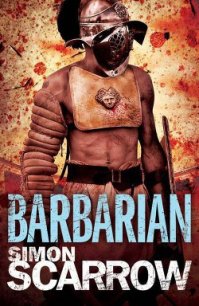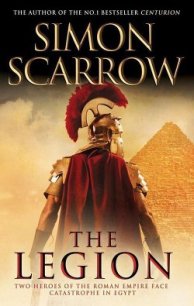The Fields of Death - Scarrow Simon (читать книги онлайн бесплатно полностью без txt) 📗
Mьffling was silent for a moment as he stared back at Arthur. Then he nodded faintly. ‘Obscurity? I wonder if that will really be his fate.’
‘I hope so. As I hope that Europe will learn never to endure another such.’ Arthur stroked his jaw. ‘If he is not to be cast into obscurity, then let him at least be remembered as the first general in all the world.’
Mьffling looked surprised. ‘Surely you, or Blьcher, might assume that title with just cause, in the wake of Waterloo?’
‘Perhaps. It is customary for the victors to write the history, and on the day I outfought Bonaparte.’ Arthur turned to gaze out of the window. ‘Yet I cannot easily believe that so singular a genius, and so cruel an ambition, will ever release his grip on posterity . . . For my part, I am not sure that I care. I have played my role, served my country, and now I am done with soldiering. Whatever history eventually makes of me, I know that I have earned my peace.’
Author’s Note
It has been an epic tale and, having followed the lives of two of history’s greatest figures, I imagine that many readers will want to know what became of Napoleon and Wellington after their titanic struggle came to an end.
For Napoleon, there remained less than six years of life. He spent these at Longwood House on St Helena, a meagre accommodation for a former emperor. Napoleon continued to be bitter about his imprisonment, perpetually complaining to the governor of the small colony, and writing letters to the British government to demand better conditions and relocation to a less desolate place of exile. When he was not protesting about his captivity, Napoleon set about writing, or rather dictating, his memoirs. These were fabulously partial and depicted Napoleon as an heroic, moral and infallible figure. That his empire had collapsed he put down to the betrayals and incompetence of his subordinates. His enemies were portrayed as foolish and corrupt, and he regarded Wellington with increasing resentment. This was partly because he blamed the Duke for the decision to send him to St Helena (wrongly, since the location was suggested by a civil servant) but mostly because Wellington had beaten Napoleon, as he had beaten the emperor’s best marshals, and thereby demolished their reputation of invincibility.
When he put aside his protests, and his rewriting of history, Napoleon occasionally walked about the small island, always under the watchful eyes of his captors. He ate excessively and put on a great deal of weight. His health began to fail and in 1821 he complained about a sharp pain in his stomach which grew steadily worse as the weeks passed. Napoleon died on 5 May and was buried with full ceremonial honours four days later. His grave was covered over with a plain cement slab and there his body lay until 1840, when it was returned to France and entombed in Les Invalides. The funeral procession was attended by the surviving veterans of the Grand Army, tearfully following their former master to his final resting place.
There is still a debate about the cause of Napoleon’s death. At the time it was said to be cancer, the same fate that had befallen Carlos Buona Parte, Napoleon’s father. More recent tests on samples of Napoleon’s hair revealed the concentrated presence of arsenic, however, and certainly the symptoms noted at the time are consistent with such poisoning. It is possible that the arsenic had been administered in small doses for as long as two years prior to his death and the accumulated affect was fatal. The identity of any poisoner is unknown. Some argue that it was an assassin acting on behalf of the British government, but it is equally likely that it was an agent within Napoleon’s small household, paid to do the deed by the Bourbons.
The report of Napoleon’s death was received with a degree of equanimity in Europe. Despite some hysteria amongst those still loyal to Napoleon, it is Talleyrand’s characteristic response that best sums up the real significance of his death. Tallyrand is said to have been playing cards when word reached the house of his hostess. The lady was silent for a moment before exclaiming, ‘What a momentous event!’ Talleyrand shook his head and responded. ‘No. It is only news.’
The principal victor of Waterloo (in terms of the rewards garnered, if not the absolute responsibility for bringing about Napoleon’s defeat), lived a long and prosperous life. Prize money and the rewards awarded to him by parliament amounted to over three quarters of a million pounds - a staggering fortune by the standards of the day. On his return to England, Arthur insisted on the creation of the Waterloo medal - the first such to be issued to all ranks. Although he was never again called upon to serve in the field he did briefly become commander-in-chief of the army, an honour usually reserved for a member of the royal family. Following the death of Prime Minister Canning in 1828, Arthur reluctantly accepted the premiership and was immediately embroiled in a political crisis. For many years, reformers had been pressing for legislation to relieve Catholics of some of the oppressive restrictions they were forced to live under. Fearing that there might be a civil war unless the restrictions were lifted, Arthur steered the legislation through parliament and even fought a duel with a staunch opponent of Catholic relief. Luckily, both men were sensible enough to shoot wide and settle the affair with some measure of honour.
Embittered by his experience, Arthur opposed more reform, this time to permit more people to vote for their members of parliament, and his government fell. After some years in opposition, he served as foreign secretary before retiring from politics in 1846.
On his return from the war Arthur’s marriage to Kitty steadily soured. He felt no love for her, and was constantly frustrated by her lack of sophistication and common sense. For her part, Kitty lived in hope of restoring just a little of the affection he had once genuinely felt for her in the early days of their courtship, before the outbreak of the French Revolution. She died in 1831, never realising that hope. Arthur’s disappointment with his wife extended to his two sons who were for ever burdened by living in the shadow of their father. Arthur’s relationship with his grandchildren was far happier and he took great pleasure in their company as he grew old and infirm.
Arthur died in 1852 and his body was placed in a tomb in St Paul’s Cathedral after a spectacular funeral procession. Ten thousand soldiers accompanied the coffin, together with Queen Victoria and the leading statesmen of the age. Over a million people turned out to line the route and pay their respects to the man who had provided two decades of the finest service to save his country from a foreign dictator.
For those readers who want to pursue their interest in the Duke of Wellington, there are a large number of histories, as well as an interesting history of his heirs, written by his descendant Jane Wellesley. I would also heartily recommend a visit to Apsley House in London. Number 1, London, as it happens, though such a singular address, does not seem to attract quite as many visitors as you would imagine. It is a fascinating experience to tread the halls and chambers of the Duke’s London home. There you can see some of the treasures awarded him by the grateful Spanish after the battle of Vitoria. Best of all is the huge statue of Napoleon, represented as a classic nude, which stands as a permanent trophy from the wars that shaped the destiny of Europe, and much of the rest of the world besides.
My parting thought is to remember the words of a noted historian I heard when he was replying to a question from an undergraduate. He had been asked what was the main significance of the French Revolution, and the rise of Napoleon. The historian was silent for a moment before he replied, ‘I think it is too early to say.’




